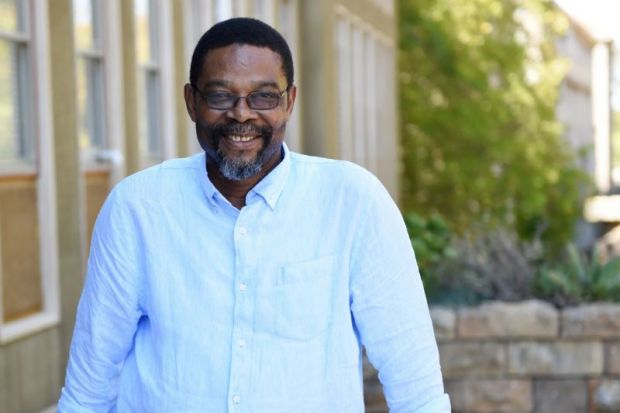A scholar who played a major role in pushing forward the decolonisation agenda at the University of Cape Town has died.
Harry Garuba was born in Akure, Nigeria in 1958 and studied English at the University of Ibadan (1975-78). He also did an MA there (1980-81) and stayed on as a lecturer (1981-92) and then senior lecturer (1992-97), gaining a PhD in 1988 for a thesis on “Mask and Meaning in Black Drama: Africa and the Diaspora”. He published a volume of poetry Shadow and Dream & Other Poems (1982) while still in his mid-twenties, to be followed up many years later by Animist Chants and Memorials (2017).
In 1998, Professor Garuba moved from Nigeria to South Africa for the rest of his life, initially as a senior lecturer at the University of Zululand (1998-2000) and then in a number of roles at the University of Cape Town. Jointly appointed to the English department and the Centre for African Studies, he served as a senior lecturer (2001-04) and, from 2005, as an associate professor before being promoted to full professor in 2018. He also acted as dean of the humanities faculty in 2017.
From 2009 to 2011, Professor Garuba was director of the Centre for African Studies and played a major role in forging it into a major research hub for the whole continent. Convinced that what is taught in universities is crucial for wider social transformation, he developed important ideas for what a decolonised curriculum in Africa and a multicultural curriculum in the West might mean, as part of Cape Town’s Curriculum Change Working Group.
A leading authority on postcolonial theory and literature, Professor Garuba published widely in these areas and also spent time as a Mellon fellow at the University of Texas at Austin (2005), a Mandela fellow at Harvard University (2005-06) and a visiting research scholar at Emory University in Atlanta (2012-13).
Shose Kessi, the current dean of humanities at Cape Town, described Professor Garuba as “a beautiful soul with a kind and generous spirit – an African intellectual and icon”, while acting vice-chancellor Lis Lange said that his “scholarship was driven by a deep dedication to his students and to decolonising the study of Africa. His passing is a great loss to the university and the transformation project, but we must continue this important work in his absence and build on the foundation he has left.”
Professor Garuba died on 28 February and is survived by his wife Zazi, a son and a daughter.
请先注册再继续
为何要注册?
- 注册是免费的,而且十分便捷
- 注册成功后,您每月可免费阅读3篇文章
- 订阅我们的邮件
已经注册或者是已订阅?
